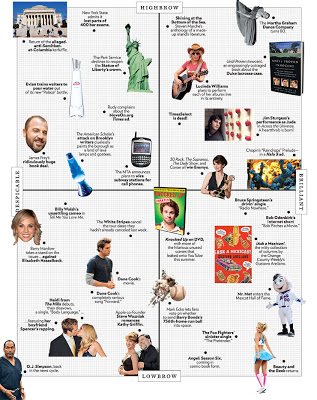After reading Christine Kenneally’s The First Word: The Search for the Origins of Language (2007) I could see that most theorists agree with me that language must have started small: With single words. None of the theorists seem to use my other guiding principle: Lightning doesn’t strike twice in one place for different reasons. If two rare events — such as (a) a sound in the night that sounds like a burglar and (b) in the morning your wallet is gone — might be due to the same thing, they probably are. Use of this principle means that how language evolved should fit into a larger explanation.
Humans differ from our closest primate relatives — not to mention all other species — in many ways, of course. One big difference is language; but there are many others. Application of the lightning-strikes-twice principle means that language probably began for the same reason as the other differences.
The overwhelming difference between humans and other species is that humans specialize in terms of jobs. Two randomly-selected people almost surely make their living doing quite different things all day. No other species does this. Two randomly-selected members of any other species almost surely make their living doing the same thing all day. The story I am trying to tell in my human evolution posts is how humans came to specialize like this. (I believe the aquatic ape theory is right, but it’s about an earlier stage of human evolution, before job specialization.)
For me, the question of how language evolved becomes the question: How did single-word language promote job specialization? This has an obvious answer: It promoted trade, which job specialization obviously requires. The first words were nouns — in particular, the names of objects (chair, knife, bag, etc.). These words promoted trade because:
1. They served as advertising. It became much easier to tell others that you or someone else had something to trade. It’s weird that there is no word for the other side of the picture: Wanting something. Single words also made it much easier to broadcast that there was something you wanted.
2. They emphasized function. The words chair, knife, and bag describe the function of the objects they name. Objects have many other qualities, of course: color, location, ownership, age, materials, etc. Common words tend to hide those qualities and emphasize function. Trades based on function became easier to arrange than trades based on desires for other qualities. The first words helped people trade for stuff they could use, in other words.
Single words work perfectly as advertising. They are still used this way. In a Guatemalan market, I heard a man shout the Spanish word for “toothpaste” over and over. Lots of businesses use single words on their signs to indicate what they sell. Early names, moreover, reflected what a person would have to give in trade: Smith, for example.
People who criticize evolutionary explanations sometimes say it is impossible to have evidence. Not so. In the case of language, you can examine how single words are used today. Sure, new ways of using language have grown up; but they are unlikely to have made old uses impossible. There are dozens of things you can’t do with single words. But you certainly can advertise and request (”fork?”).




